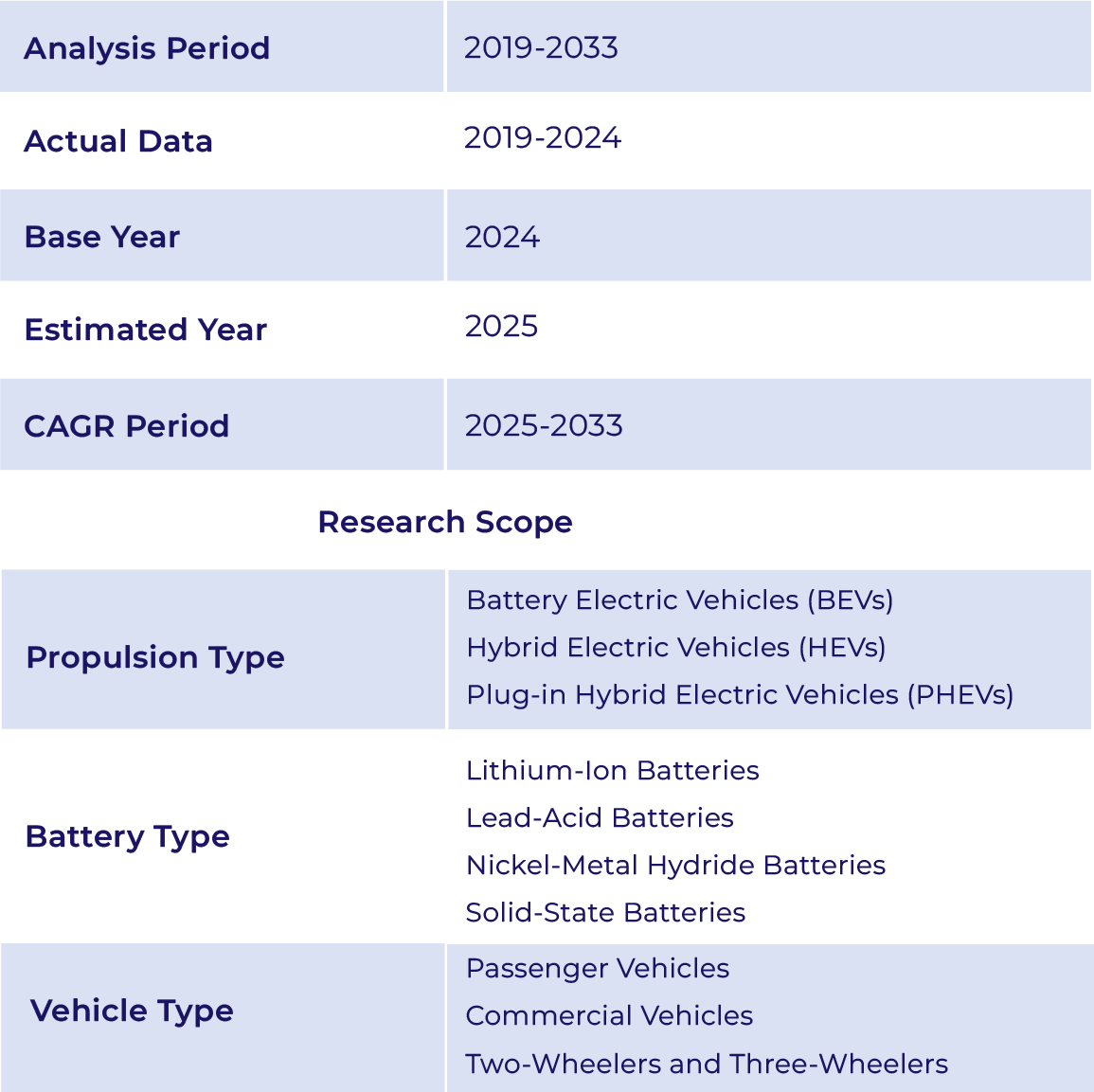Turkey Electric Vehicle Battery Market Growth and Performance
- The EV battery market in the Turkey experienced a robust expansion of XX% in 2024, reaching a total valuation of US$ XX million, primarily driven by heightened demand for electric vehicles.
- Industry forecasts anticipate sustained growth, with the market expected to rise at a CAGR of XX% through 2033, culminating in a projected value of US$ XX million.
Turkey Electric Vehicle Battery Market Outlook
Turkey electric mobility ambitions are being redefined by a sweeping national agenda that targets EV and battery production at scale. In July 2024, the Turkish government unveiled a multibillion-dollar investment roadmap designed to transform the country into a strategic EV and battery manufacturing hub. As reported by Electrive, this plan includes infrastructure expansion, supply chain localization, and incentives for both domestic and foreign manufacturers. The initiative is geared not only towards fulfilling internal mobility demands but also towards positioning Turkey as a critical export bridge between Europe and Asia. Battery production is expected to be the cornerstone of this pivot, with a strong focus on lithium-ion technologies and energy storage systems to support grid electrification and future gigafactory integration. This robust industrial push signals the start of a new chapter for Turkey, transitioning from an automotive assembly base to an innovation and battery tech leader.
Turkey Electric Vehicle Battery Market Drivers
The Turkish government’s recent policy shift to offer premium investment incentives for EVs, batteries, and semiconductors has become a strong accelerator for the local energy transition. As revealed by CILive, this move—unveiled in late July 2024—includes tax exemptions, land support, and R&D credits for high-tech ventures. These policy enhancements are designed to not only attract foreign investors but also empower local firms to scale their operations. For the battery market specifically, the incentives aim to reduce the cost of building and operating manufacturing plants while fostering innovation in cell design, energy density, and thermal stability. This approach ensures Turkey becomes a compelling destination for upstream and downstream battery investments, providing a stable policy backdrop and industrial infrastructure for long-term growth. It’s an economic strategy with deep implications: as EV adoption rises, batteries become the nerve center of Turkey’s industrial renewal.
Turkey Electric Vehicle Battery Industry Trends
One of the most transformative industry developments is BYD’s $1 billion investment in Turkey, which was announced through its regional virtual office in September 2024. This investment isn’t just about manufacturing—it’s about laying the groundwork for a fully integrated EV ecosystem. BYD’s plan includes battery production, R&D centres, and local supply chain development tailored for both domestic needs and European export. The involvement of such a high-calibre global player showcases Turkey’s increasing relevance as a strategic location with geographic, economic, and logistical advantages. More importantly, BYD’s move reflects confidence in Turkey’s regulatory and infrastructural readiness for next-gen energy storage technologies. The ripple effect is expected to influence local skill development, battery component standardization, and regional energy storage deployment, firmly embedding Turkey within the global EV battery value chain.
Turkey Electric Vehicle Battery Industry Development
In an impressive show of strategic manufacturing expansion, EVE Energy, a Chinese battery giant, confirmed plans to invest in Turkish battery cell production in September 2024. According to LICARCO News, this move includes setting up localized production lines with a focus on cylindrical cells and advanced lithium chemistries that align with European regulatory standards. This development will not only reduce Turkey’s dependence on imported batteries but also integrate it more deeply into the European automotive supply chain. EVE’s entry provides Turkish OEMs with direct access to high-performance battery technologies and opens avenues for collaboration on product customization, lifecycle management, and recycling. Additionally, the plant is expected to focus on batteries for both EVs and grid storage, supporting the dual goals of decarbonized transport and energy resilience. It’s a game-changing step for Turkey’s ambition to become a key player in the global battery manufacturing landscape.
Furthermore, the role of materials in EV battery production cannot be overstated, and Turkey’s steel sector is stepping up to support this growth. In July 2024, the Southeast Asia Iron and Steel Institute (SEAISI) highlighted Turkey’s progress in producing high-grade steel required for EV chassis and battery casings. This development ensures the supply chain isn’t just globally connected, but locally resilient. It reflects a vertically integrated strategy where Turkey produces both the structural and energy components of electric mobility.
Turkey Electric Vehicle Battery Market Scope







